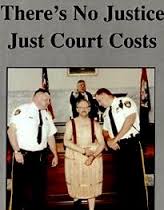
Two recent wills variation cases awarded the usual order of court costs to a winning party, namely Scale B.
In Dakin v Patry 2016 BCSC 1006 a plaintiff won a summary trial and was awarded scale B .
In Ciarniello v James 2016 BCSC 1805 the plaintiff again won the trial and was awarded Scale B court costs.
The court in Ciarniello restated some case law re the usual orders in estate litigation depending on who was responsible for the court claim in the fist place.
4) Clearly the plaintiff was the successful party. However, in some circumstances costs in estate litigation are handled differently and this was generally described by Dardi J. in Massam Estate (Re), [2015] B.C.J. No. 1607, 2015 BCSC 1306, where she said at para. 49:
The costs analysis in certain types of estate litigation is informed by specific principles unique to estate litigation: Mawdsley v. Meshen, 2011 BCSC 923. For example, if the litigation was brought about or sprung from the will-maker’s own conduct — such as ambiguous wording in the will requiring an application to construe the will — the general judicial approach has been that all parties should be awarded their costs out of the estate: Lee v. Lee Estate (1993), 84 B.C.L.R. (2d) 341 (S.C.); Vielbig v. Waterland Estate (1995), 1 B.C.L.R. (3d) 76 (C.A.). Otherwise, the usual rule is that costs follow the event, so that the successful litigant is entitled to recover costs from the unsuccessful opposing party. The court, however, retains the discretion to order otherwise if the circumstances warrant it. Any discretionary exceptions to the usual costs rules must be made judicially: Bailey v. Victory (1995), 4 B.C.L.R. (3d) 389 (C.A.) at 393.
[5] The leading case on the usual approach to costs in estate litigation is the Court of Appeal’s decision in Vielbig v. Waterland Estate (1995), 1 B.C.L.R. (3d) 76. Hinds J.A. referred to the decision of Master Horn in Lee v. Lee Estate (1993), 50 E.T.R. 297 at pp. 301-302 for the proposition that “where the validity of a will or the capacity of the testator to make a will or the meaning of a will is in issue, it is sometimes the case that the costs of all parties are ordered to be paid out of the estate”. However, quoting further from Master Horn he referred to litigation such as the case at bar where the issue was not the validity of the will or the testator’s capacity but the provisions directed to the support and maintenance of dependants and said in part:
But the case is different where the litigation does not relate to the validity of the will or the capacity of the testator or the construction of the will. Actions brought under dependants’ relief legislation presume the validity of the will and the capacity of the testator and that his intentions are clear. There are not doubts to be settled. The remedies provided by such legislation are directed to the maintenance and support of the dependants of the testator and are based on public policy. The legislation does not invalidate the will, it merely permits the court to vary the provisions made by the testator. So an unsuccessful action under such legislation cannot be said to have been caused by a testator, or to have been necessary to enable the estate to be distributed. The action does not benefit the estate.
[6] Hinds J.A. continued at para. 45:
Here there was no question of the validity of the will, the testamentary capacity of the Testator, or of the meaning of the will. The Testator was not at fault in some way, thereby contributing to the appellant making an unsuccessful claim against his estate. In my view the general rule must prevail; costs should follow the event. …
[7] There is no reason, exercising my discretion judicially, to make an order different from that sought by the plaintiff’s counsel. The plaintiff was successful. I was not shown any offers to settle by either party that showed the result was better than a result they were prepared to settle




